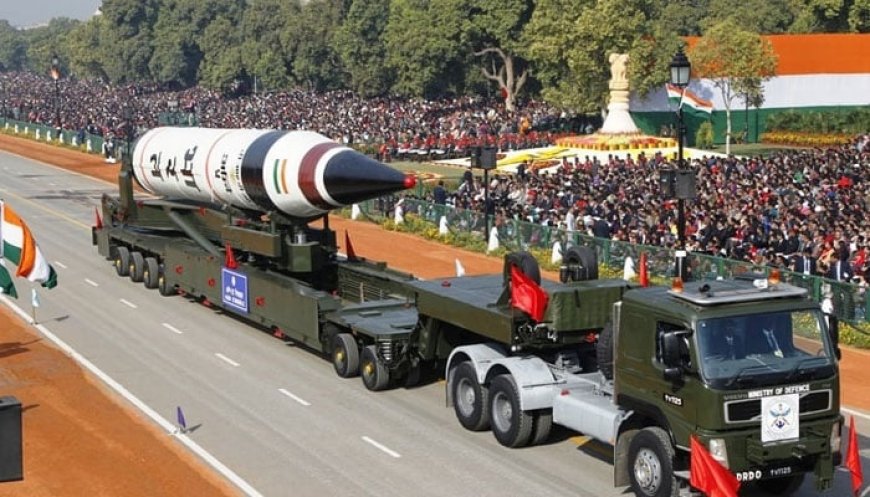India has more nuclear weapons than Pakistan: SIPRI
India has more nuclear weapons than Pakistan: SIPRI

1.
**STOCKHOLM:** India now possesses more nuclear weapons than Pakistan in 2024, as per the Stockholm International Peace Research Institute's (SIPRI) annual assessment.
SIPRI's evaluation of global armaments, disarmament, and international security reveals that the United States holds the most nuclear warheads, followed by Russia, the United Kingdom, France, China, India, Pakistan, North Korea, and Israel.
The report highlights that worsening geopolitical relations have increased the prominence of nuclear weapons, with a rise in their number and variety as countries deepen their reliance on nuclear deterrence.
The assessment indicates that nuclear-armed states are continuing to modernize their arsenals, with several deploying new nuclear-armed or nuclear-capable weapon systems in 2023. Approximately 9,585 of the 12,121 warheads counted in January 2024 are in military stockpiles ready for potential use. Of these, 3,904 warheads are deployed with missiles and aircraft—60 more than in January 2023—and about 2,100 are in a state of high operational alert on ballistic missiles.
Most of these warheads belong to Russia or the United States, but for the first time, China is believed to have some warheads on high operational alert.
Expressing concern over this trend, SIPRI Director Dan Smith stated: "While the global total of nuclear warheads continues to fall as Cold War-era weapons are gradually dismantled, regrettably, we continue to see year-on-year increases in the number of operational nuclear warheads."
SIPRI noted that Russia and the US possess nearly 90% of all nuclear weapons, with each country having over 1,200 retired warheads in the process of being dismantled. The report also estimates that China's nuclear arsenal grew from 410 warheads in January 2023 to 500 in January 2024.
Regarding the UK, SIPRI anticipates an increase in its warhead stockpile, while France is advancing its programs to develop a third-generation nuclear-powered ballistic missile submarine (SSBN) and a new air-launched cruise missile, alongside refurbishing and upgrading existing systems.
The institute observed that India and North Korea are working towards deploying multiple warheads on ballistic missiles. India slightly expanded its nuclear arsenal in 2023 and appears to be emphasizing longer-range weapons capable of reaching targets throughout China, continuing the development of new nuclear delivery systems.
North Korea is estimated to have around 50 warheads, with sufficient fissile material to increase this to up to 90 warheads, marking significant growth over the previous year's estimates. Israel is also believed to be modernizing its nuclear arsenal, including upgrades to its plutonium production reactor at Dimona.
"We are now in one of the most dangerous periods in human history," Smith warned. "There are numerous sources of instability—political rivalries, economic inequalities, ecological disruption, and an accelerating arms race. The abyss is beckoning, and it is time for the great powers to step back and reflect, preferably together."


















































